Screenings in Greenfield raise awareness of gambling addiction
|
Published: 03-12-2024 5:38 PM
Modified: 03-14-2024 9:36 AM |
GREENFIELD — With the legalization of sports betting putting Massachusetts residents at an increased risk of problem gambling, Pioneer Valley volunteers did their part on Tuesday to help detect problem gambling habits and connect residents with the resources they need.
Volunteers with The RECOVER Project, a peer recovery support center, visited the Greenfield Public Library on Tuesday afternoon to screen visitors for gambling addiction in recognition of Gambling Disorder Screening Day. Established in 2014, Gambling Disorder Screening Day takes place in the second week of March each year, and is used to detect problem gambling, and possibly intervene.
Those who were screened walked out of the library with a $5 Dunkin’ gift card, courtesy of the state Department of Public Health, which funded screening events among peer recovery centers within the Western Massachusetts Training Consortium.
Participants were invited to fill out surveys with questions about their gambling habits and were provided resources to seek help for gambling addiction. Although The RECOVER Project on Federal Street typically specializes in substance abuse recovery, Program Director Abbi Cushing said the program ultimately aims to combat addiction, regardless of its form.
“Typically, we do support people with substance use recovery, however, that’s a symptom of the disease of addiction, and it can manifest in many forms, and gambling is one of those forms that really can affect people’s lives adversely,” Cushing said. “The RECOVER Project is here to support anyone that needs support so they come in, and we can make referrals to different organizations that can support the different types of addiction that they might be experiencing, gambling being one of them.”
Sarah Rashad, who works for The RECOVER Project, said the Greenfield event saw a “terrific turnout” with 42 survey respondents, some of whom expressed interest in seeking The RECOVER Project’s resources.
According to a study conducted by the University of Massachusetts Amherst in 2018, approximately 2 million adults in the U.S., or 1% of the population, had a gambling problem. In Massachusetts, UMass reported, more than 139,600 people, or 2% of the state’s population, had a gambling problem.
Northampton Recovery Center, a peer-driven addiction treatment nonprofit, served as the lead organizer for the regional screening day. According to Outreach Coordinator Trevor Dayton, the legalization of sports betting during the summer of 2022 made gambling much more accessible for Massachusetts residents, putting the population at an increased risk of problem gambling.
Article continues after...
Yesterday's Most Read Articles
“Sports betting is now endemic across the country,” Dayton said. “Pretty much everywhere you look, it’s being offered up and made extremely accessible. In a matter of 10 minutes, you can have an app on your phone and be actively gambling.”
Like most addictive activities, Dayton said, the act of gambling is not the sole indicator of gambling addiction. Continuing to gamble at the expense of other aspects of one’s life and neglecting to stop, Dayton said, is a common indicator of problem gambling.
The negative consequences of gambling addiction, Dayton added, can even manifest physically, as the practice often goes hand-in-hand with physically harmful activities such as smoking, excessive caffeine consumption and drinking.
The screening process for gambling addiction, Dayton said, consists of only three basic questions. Those who are screened are asked if they have, in the past 12 months, become irritable, restless, or anxious while trying to quit or cut down on gambling, if they have tried to hide the amount they gambled from their friends or family, and if gambling has caused them such significant financial losses that they had to seek help from friends, family or social welfare agencies.
In Northampton, Health and Human Services Commissioner Merridith O’Leary said her department is dedicated to addressing addiction in its many forms. Gambling addiction screenings were also offered at Forbes Library on Tuesday afternoon.
“While gambling disorder may not be the most prevalent, it is part of our larger mission for Northampton residents to reach their fullest potential of wellness. Early detection and community awareness are key to our public health efforts,” O’Leary wrote in a statement for Gambling Disorder Screening Day.
Dayton, of the Northampton Recovery Center, encouraged those who did not attend Tuesday’s screening events to evaluate their gambling habits and seek help if needed.
“Answering ‘yes’ to any one of those questions doesn’t indicate that you have a problem with gambling,” he noted. “It just suggests that you might want to consider your behavior in light of the consequences and possibly seek support in recovery.”
Anthony Cammalleri can be reached at acammalleri@recorder.com
or 413-930-4429.

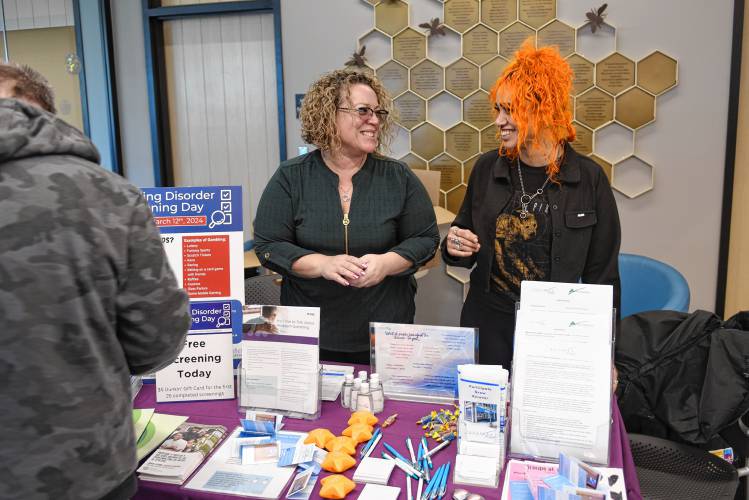
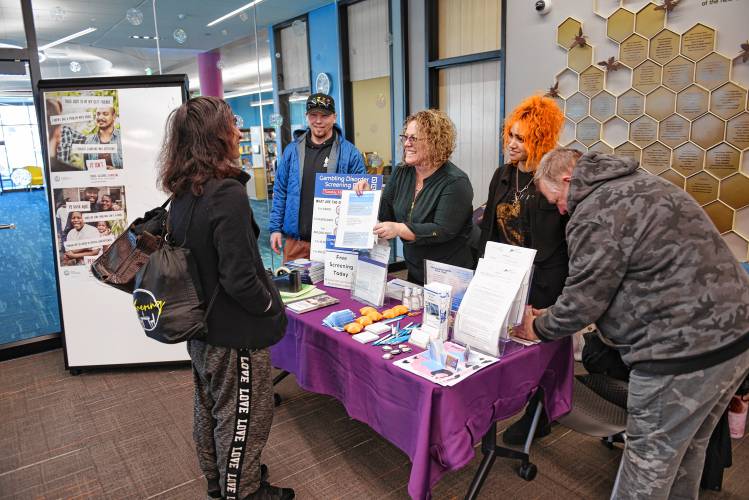
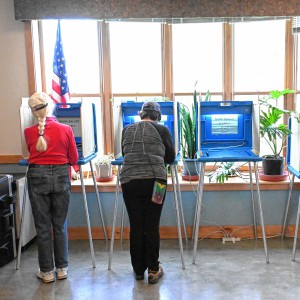 No surprises in Wendell election
No surprises in Wendell election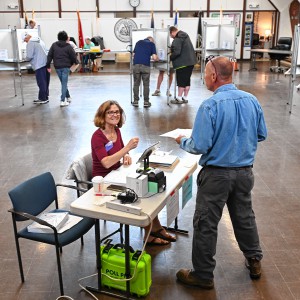 Political newcomer defeats Shores Ness for Deerfield Selectboard seat
Political newcomer defeats Shores Ness for Deerfield Selectboard seat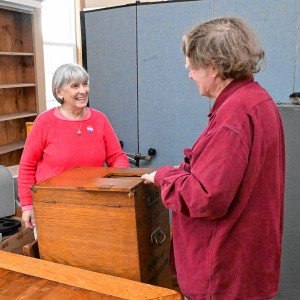 New Salem election ushers in new Selectboard member
New Salem election ushers in new Selectboard member Bridge of Flowers in Shelburne Falls to open on plant sale day, May 11
Bridge of Flowers in Shelburne Falls to open on plant sale day, May 11
